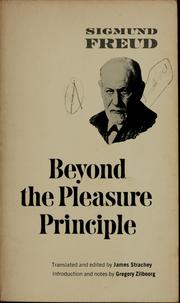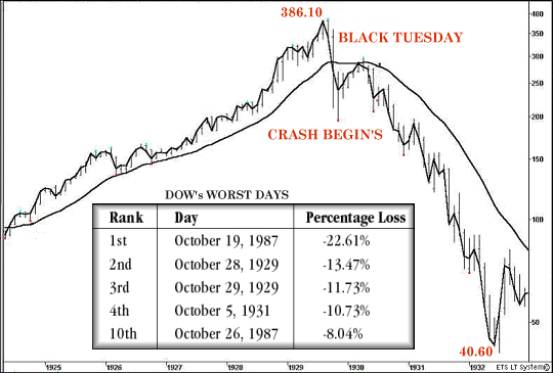National cash register building, New york World's fair 1939-40
Aims:
- Analyse the rise of the US consumerism
- Discuss the links between the consumerism and our unconscious desires
- Sigmund Freud
- Edmund Bernays (Sigmunds nephew.)
- Consumerism as social control.
Main two sources for he lecture:
Century of Self - Adam Curtis (2002) - Documentary
No logo, Brands globalisation resistance - Naomi Klein (1999)
- New theory of human nature
- Physco-analysis
- Hidden primitive sexual forces and animal instincts which need controlling
- The interpretation of Dreams (1899)
- The unconscious (1915)
- The ego and the Id (1923)
- Beyond the Pleasure and Pleasure (1920)
- Civilisations & its discontents (1930)
- - Fundamental tension between civilisation and individual.
- Argues that: Human instincts incompatible with the well being of community
- The pleasure principle.
We all have a strong desires for violence and have sex, but we can't act them out, otherwise society would be full of rapists. Society imposes laws and systems to keep law and order. What the means to a certain extent is that we will remain unsatisfied and those desires will not go away and must be released somehow in a way. Desires manifest themselves.
Pleasure principle: If our desires are allowed, or feel like we can act them we can satiate, in a socially acceptable way, momentarily, we are docile and happy and not irrational and content.
Civilisation will make us discontent.
Believed there was repressed desires which are dangerous, animal instants, analysed people's dreams. The three of his main, believed we are desired based and society stops us acting out our fantasies.
We think all our actions are conscience, but a lot is buried beneath within our ID (wish fulfilment) the Id is where all the primitive and instincts are held and repressed and not accessed conscienceless, hidden behind.
Looking at something with a freudian view is to open up our unconscience and dicers.
The unconscious is a hidden and dangerous place.
Freud's Model of personality structure:
First world war was expected by him, We shouldn't have been surprised by it, It destroys it's self. People will find a release. Freud in First world war, he was depressed because of it, It was the optima of morbid desire released from the unconscience.
Edward Bernays (1891-1995)
- Press agent
- Employed by the public information during WW1
After WW1 west gains a lot of wealth and becomes prosperous, the west develops and becomes affluent.
- Post war set up 'the council on public relations'
- Birth of PR
- Based on ideas of the Freud (his uncle)
- Crystallising public opinion (1923)
- Propaganda (1928)
PR Started in America with Edward bernays, CPO uses Freuds principles
1929 Easter day parade
If you can link a product to the hidden desires unsatiated animal instincts, or repressed unconscious you can make a false need for a product, and want, demand, desire for such product.
People paid him a lot to market their products, he used physiological techniques to advertise. Women smoking was a taboo, employed to make women smoke, paid beautiful women to smoke (debutaunts) to advertise and erase the taboo.
At an organised moment, tipped off to photographers they all lit up cigarettes, beautiful women smoking, fed story to the press, the women were suffragette (women to vote, etc) A political protest for women to smoke 'Torches of freedom' - Women started to smoke because they (in public conscience) became a symbol of sex appeal, free, freedom. This continues through american culture.
Attach something meaningless to something with meaning, smoking = power.
Politicians wanted to make use of Berney's techniques.
- Product placement
- Celebrity endorsements
- The use of pseudoscientific reports
Fake reports to give advertisements more gravitas.
The President, Coolidge, (known as a joke, boring) employed Berney's, celebrity endorsement to promote Coolidge, Song's wrote for him (Al Johnson, popular musician transposed on the Politician) Relies on the principle of some desire to be satisfied.
Fordism
- Henry Ford (1863 - 1947)
- Transposes Taylorism to car factories of Detroit.
- Moving assembly line
- Standard production models built as they move through the factory
- Requires large investment, but increased productivity so much that relatively high wages can be paid, allowing the workers to buy the product they produce.
(factory line = Taylorism)
From this came the importance of brands, due to mass production.
It became important to distinguish products from everyone else's. This is the start of modern consumerism. Personalisations are made, Mascots (friendly old women to make them seem more appealing to women to use.)
Aunt Jermima's Pancake flour made women feel less of a housewife because it was pre-mixed, they used focus groups to discover this, so they made it so you had to crack a egg into the mix so it made the women feel like they were providing, It satisfied a desire for them. And for people who didn't know how to cook.
(1909) OLDS-MOBILE
- Advertisement change to rely on physiological techniques, before this it was simply a description of what it was they were selling. This advert was a early example of the physiological techniques, owning a car is associated to power, in control of your wife, drive were you want. Edward Berneys was happy he was one of the first to link male sexuality that to cars, now it's the norm.
(1919) Cadillac
- Not sold it's virtues, solids on it's status and image, chateau in background, column shows success and affluence.
Chanel, 'The most treasured name in perfume. Based on desire.
Advertisements moved from needs, to wants. Want Chanel to have to the same sexual allure as a celebrity, consumerism brings this shift.
Advertisement has been so incredibly good that no one ever feels like they have to much stuff, because there's always something else they want and 'need'
Marketing hidden needs - Vance Packard (1957)
- Selling emotional security.
Fridge freezers waste more money then you need to because freezers keep food when you don't need it. Emotional security knowing you have food, it doesn't matter if you don't use it it's the sub conscience that you have food to provide at least so you spend more.
- Selling reassurance of worth
- Selling ego-gratification
IF you can trade a sense of worth you can market to house wives successfully.
- Eg: Marketted under the idea of a hoover making you the house wife of house wives to free up time to do what you want the rest of the day. The emotional desire of self worth
- Selling creative outlets
- Selling love objects
- Selling sense of power
Reassurance that you are powerful, and affluent. Reassurance that you are who you are.
Fashion is an illusionary of who we are.
Tipalet ' Blow in her face and she'll follow you anywhere.
Births a society that thinks it's happy and successful. People are given the illusion that they are happy.
1920 Public Opinion, Walter Lippmann
- A new elite is needed to manage the bewildered herd
- Manufacturing consent
People felt happy because all of peoples desires were satiated. They became complacent.
Government became interested in the physiological effects of advertisement.
IF you can feed the bewildered herd, that they're desires are taken care for, that can be taken control, you are manufacturing consent. (Walter Lippmann)
Even politicians are incapable of managing people, big companies are employed to inform on how to organise society. More and more things should be produced to keep desires satiated.
Russian Revolution, (1917)
Peace, Land, Bread!
A peoples revolution, the oppressed, threw the rich out, replaced with a communist society.
The sharing of wealth.
A threat to capitalism, of the back of a world war. America saw the revolution scary because it was unstable.
Walter L employed to keep people docile to stop something like the RR happening in American, keeping he people happy and docile.
Oct 24, 1929
'Black Tuesday'
You can't keep expanding, eventually you'll have a boom and bust. In 1929 the biggest stock market crashes, stocks fell on everything and loads of people lost their jobs. Industries collapsed and formed the Great depression.
Roosevelt and the 'New Deal' (1933-36)
More security for the American family.
He came in to introduce benefits, job creation, early retirement ages, investment in industry. This was about governmental control of wealth control, unpopular with big businesses, up in arms, Roosevelt was that you were brought into line, not doing what you wanted.
Big business were limited with profit margins due to Roosevelt.
The World's fair in America, Berneys on the steering commute,
It was a giant piece of propaganda, futurist buildings, new modes of affluence, the whole thing was depiction of how america, the world would be like.
'Democra-city'
It wasn't democracy, people could be only free if they kept spending. This future would be yours if you bought into the labour based socialist government. The world of tomorrow was based on consumption. Our society is free, Communism is unfree. 'They're controlled by a government, we're not'
Are we really? Freedom is actually limited due to salaries, we are limited by affordability.
Conclusion. 'You are not what you own'
To what extent do our governments carry out their policies.
Our society is based on the illusion of freedom, through consumption.
Consumerism is an ideological project. Consumerism makes your docile, the pleasure principle is momentarily pleased. It makes you happy to tick on and carry on if you're for filling our desires.
- The consumer self.
- The legacy of Bernays / PR can be felt in all aspects of C21st society.
Our own prime-minister was a former PR man.
- To what extent are our lives 'free' under the western consumerist system?
The illusion of free choice.







No comments:
Post a Comment